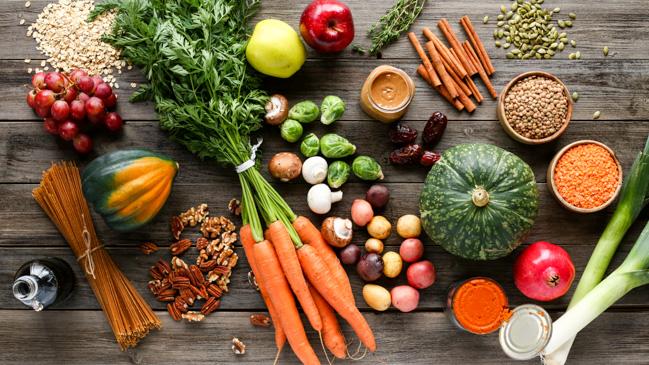If there’s one thing vegans get tired of hearing, it’s the question, “But if you can’t eat meat, where do you get your protein?” Luckily, we found some experienced students willing to share their tips to quell the fears of those looking to cut down or eliminate meat.
CAS junior Lila Jacobs, who is vegan, tends to shy away from meat substitutes such as the ever-popular Beyond Burger.
“I eat lots of beans, tofu, peanut butter and lentils,” Jacobs said. “Sometimes, I’ll get pasta made out of lentils or beans just to mix it up.”
College of Global Public Health alumna Supriya Lal, who also follows a vegan diet, avoids meat alternatives as well. Finding them pricey and often tasteless, Lal looks for protein in ways similar to Jacobs.
“Beans and lentils (black beans, lima beans, pinto beans, split peas and about 10 different kinds of lentils) and chickpeas,” Lal said. “I occasionally have tofu but am not a big fan. I would rather eat beans.”
Along with beans and lentils, many vegan students take vitamins and supplements in order to make sure they are getting the nutrients their bodies need.
“I take a multivitamin that has B12 and iron, which are the nutrients I’m most worried about,” Jacob said. “I try to also drink plant milks that are fortified with calcium because that can also be difficult to get enough of as a vegan, but it doesn’t absorb well in pill form.”
CAS junior Isabela Bohren also recognizes the benefits of supplements. In order to balance out her vegetarian diet, Bohren takes a daily iron-only pill.
Bohren also mentioned that in addition to easily accessible, protein-packed foods and supplements found in grocery stores, there are also many restaurants around NYC that cater to vegan and vegetarian diets.
“I would highly recommend by CHLOE. and Beyond Sushi for any vegan and/or vegetarian students,” Bohren wrote in an email. “While they can be a little pricier, there are far more options available for students with dietary restrictions than at other restaurants.”
Lal also recommended Soho Sushi, where she orders the avocado cucumber roll, and Jacobs recommends Red Bamboo for some filling vegan comfort food.
While knowing what and where to eat is important, there are other components to think about when considering a transition into vegan or vegetarianism. For those considering making the switch, Jacobs has some advice.
“Try it out and go slow,” Jacobs said. “I went pescatarian when I was 12, vegetarian at 14 and vegan at 17. It’s better to make slow, sustainable changes than to try to do it all at once and get overwhelmed.”
Bohren recommends carefully thinking about the reasons one wants to become vegan, especially for college students.
“Dietary restrictions can be a stressful addition to college life and, if not well versed in proper meat alternatives, can be quite harmful to the body,” Bohren wrote. “In short, do your research and remember that choosing a diet such as vegetarianism or veganism can be quite a commitment emotionally and for the physical body.”
With the number of vegans and vegetarians steadily on the rise, it’s important to remember how to stay safe and healthy when considering joining the seasoned pros. But with the right knowledge, it’s possible to be meatless and consume all the right nutrients — even protein.
A version of this article appears in the Monday, Oct. 15, 2019, print edition. Email Andrea Pineda-Salgado at [email protected].


























































































































































